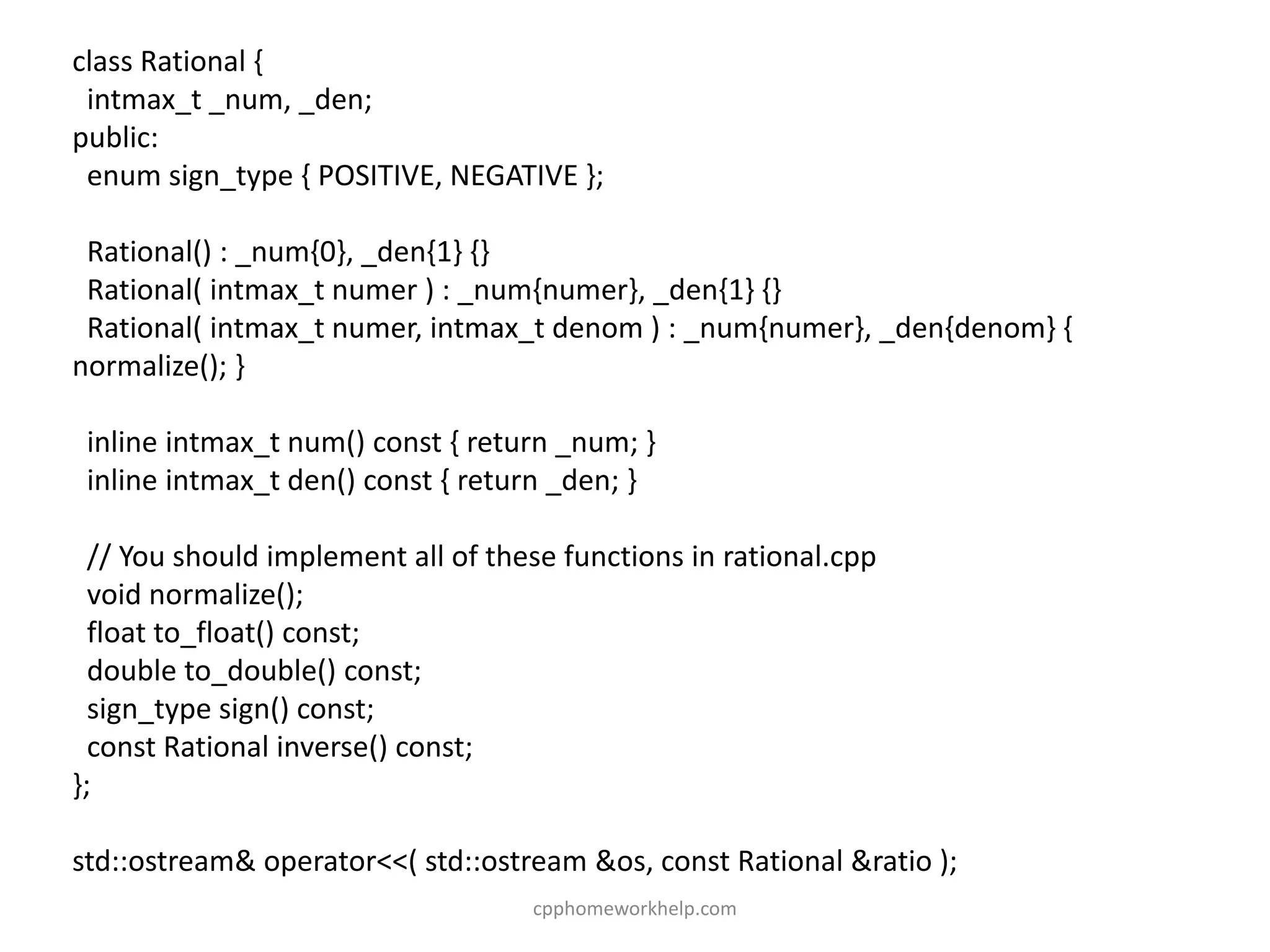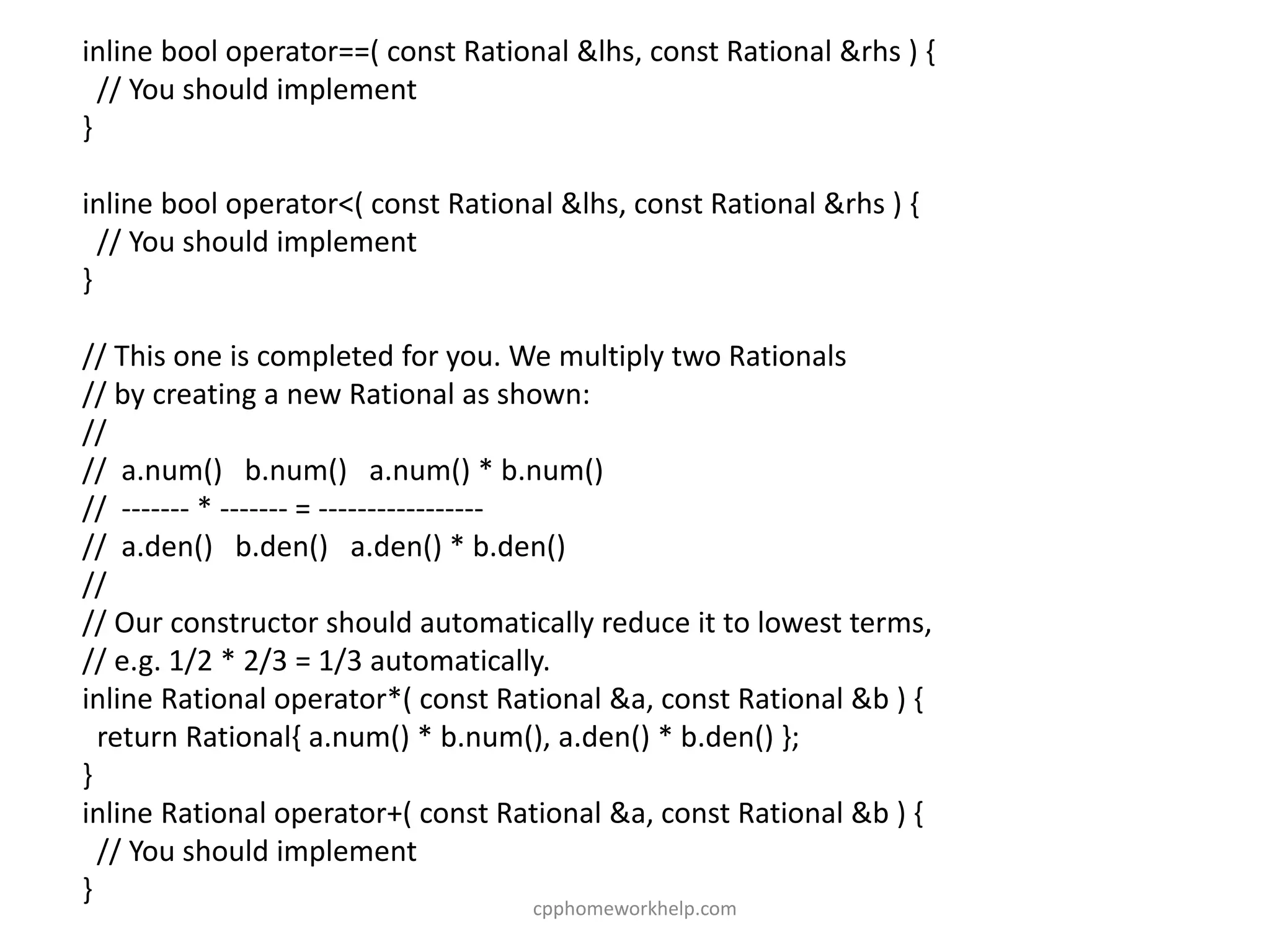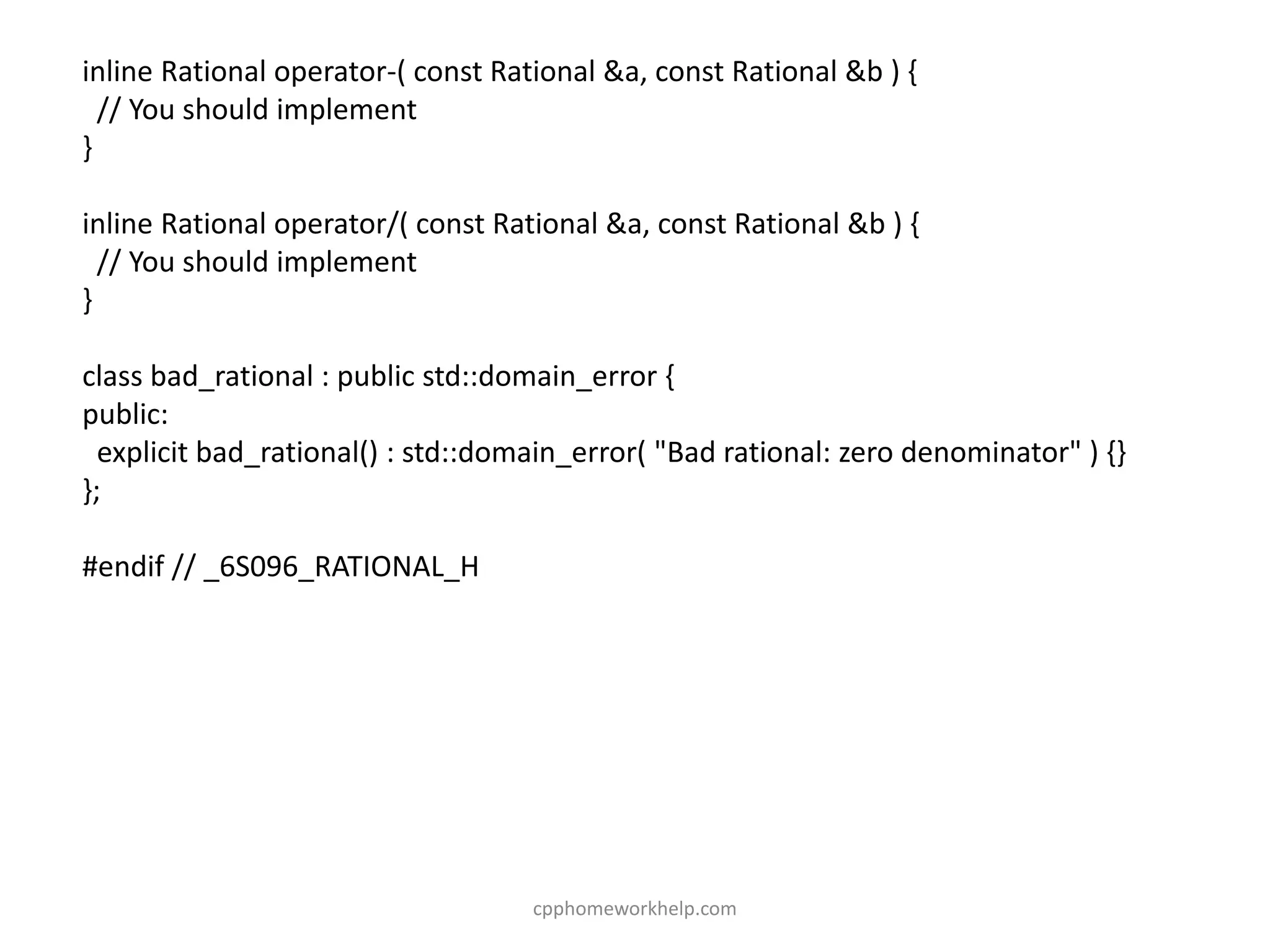Este documento describe la implementación de una biblioteca de números racionales en C++, abordando problemas con la aritmética de punto flotante y facilitando cálculos exactos. Incluye ejemplos de uso, detalles de la estructura de código necesaria, y funciones que deben ser completadas en los archivos fuente y cabecera. Los usuarios son animados a probar su implementación con pruebas personalizadas antes de enviarla para su evaluación.

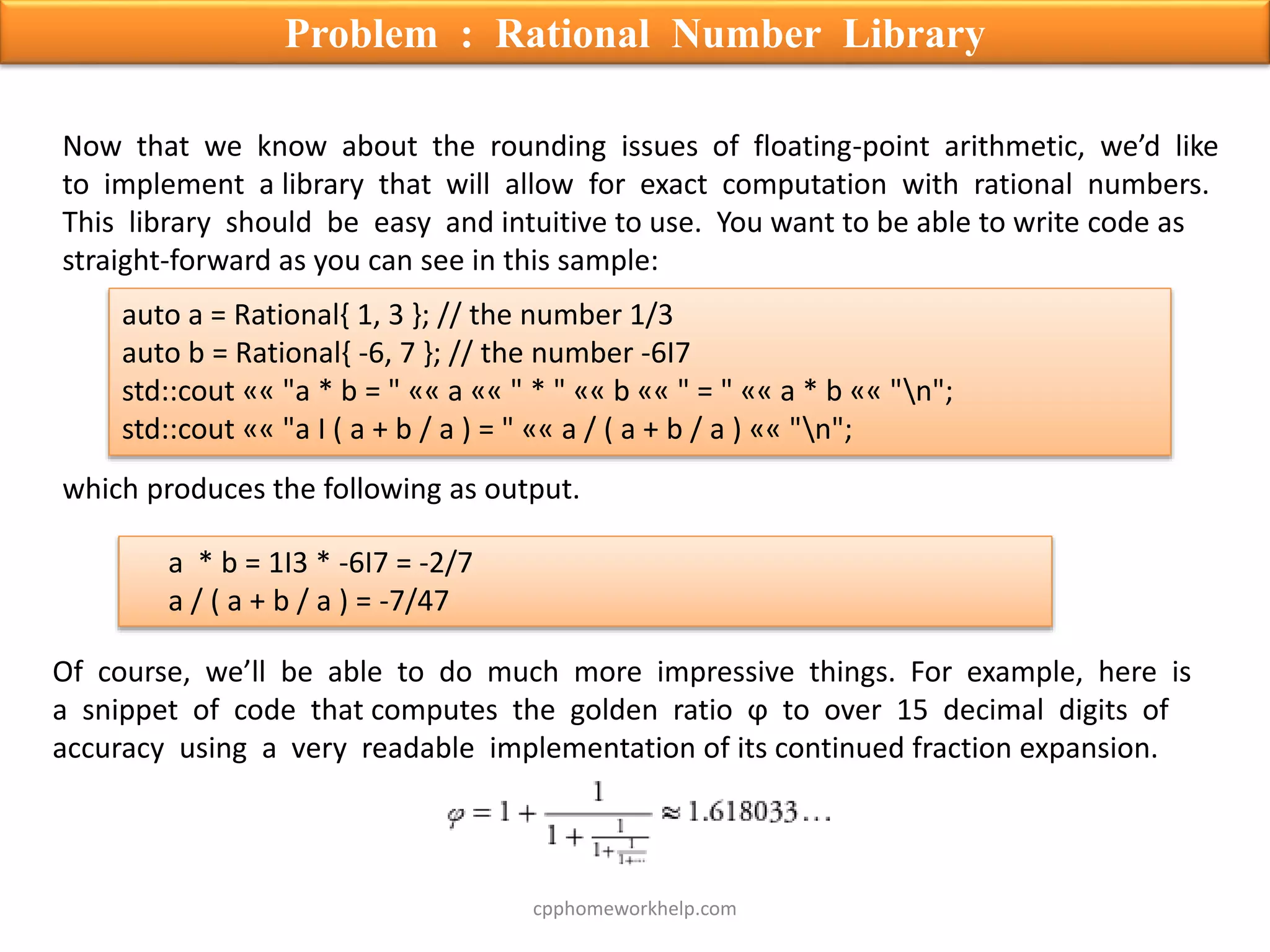
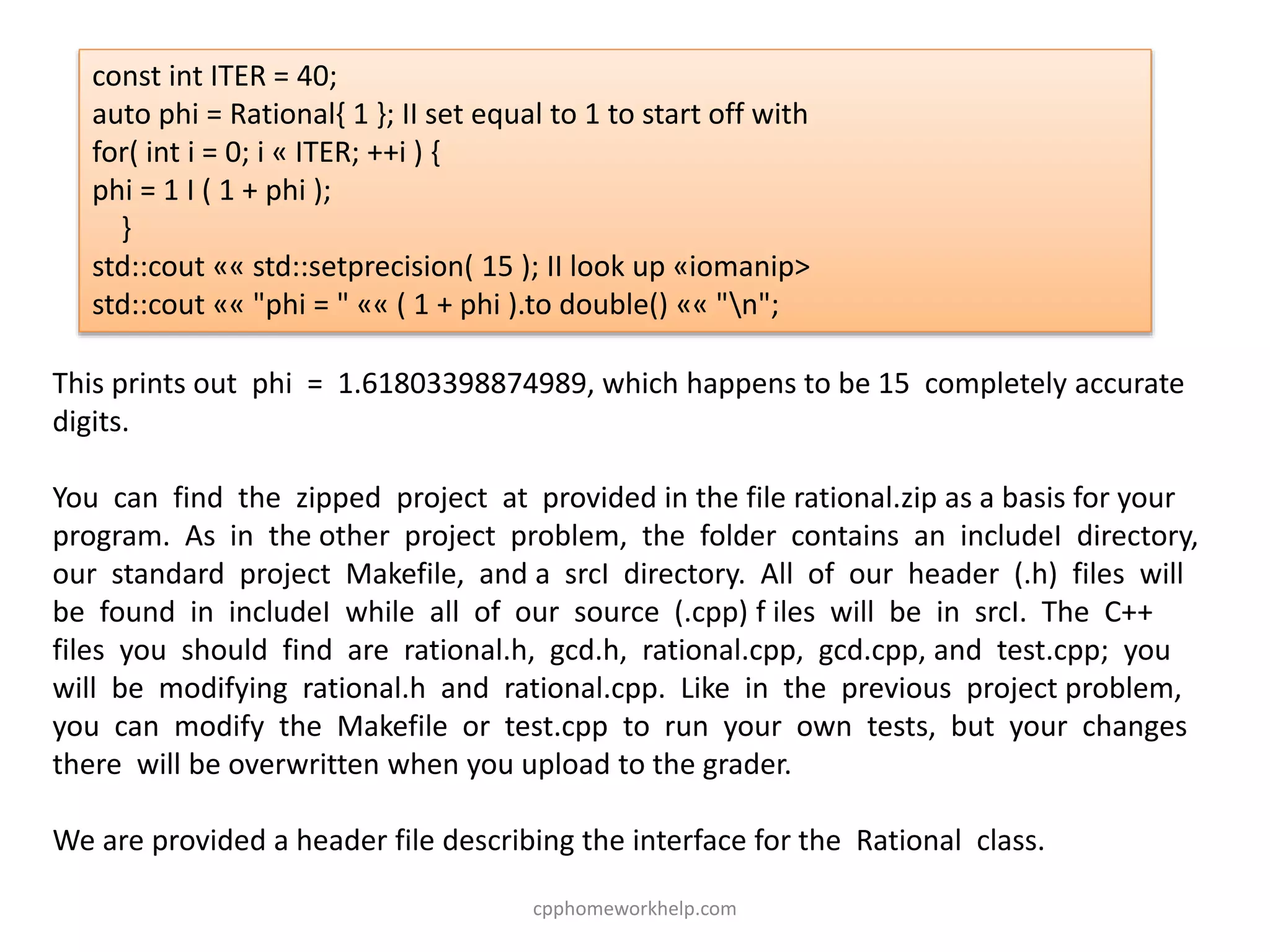
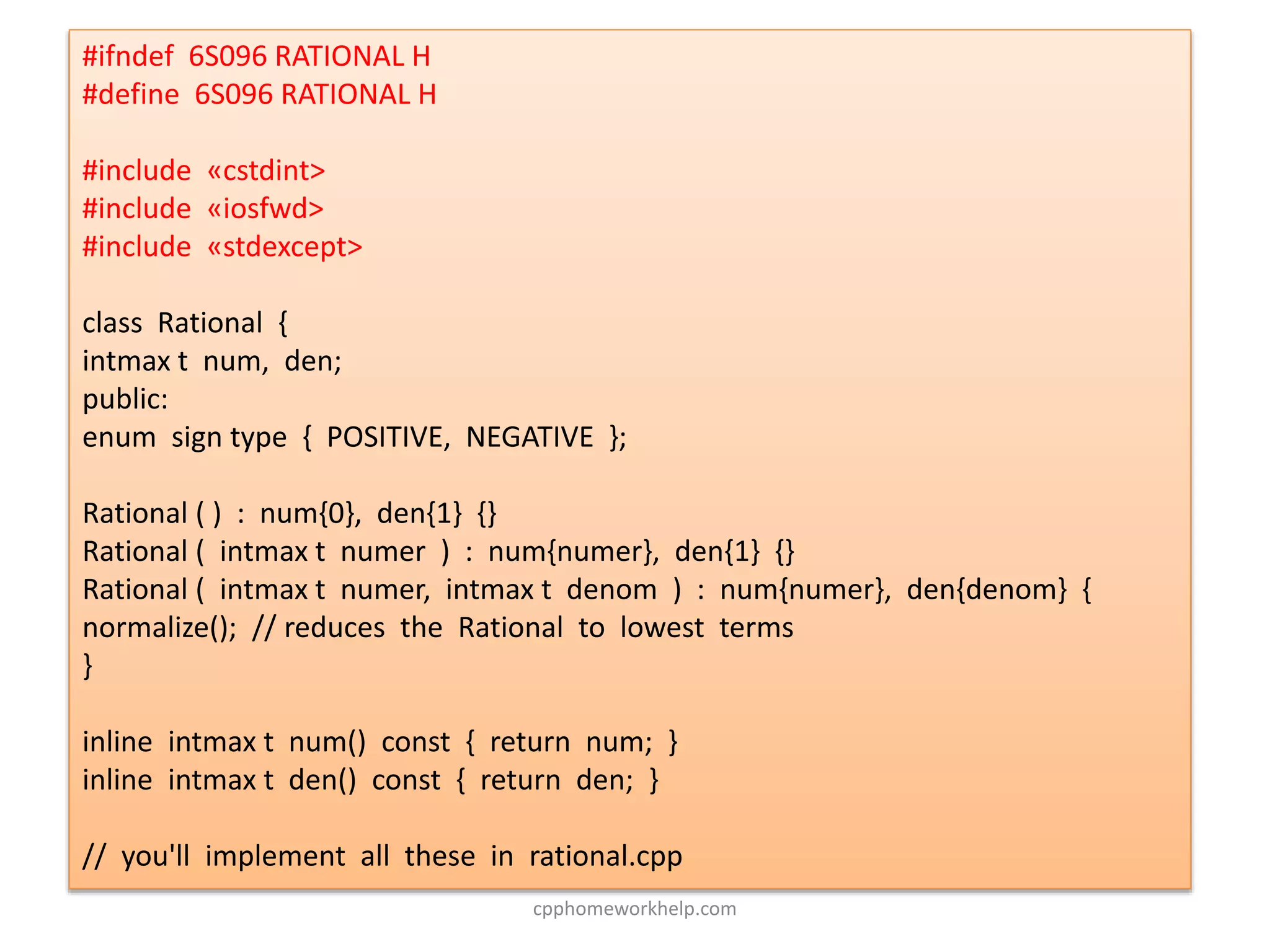
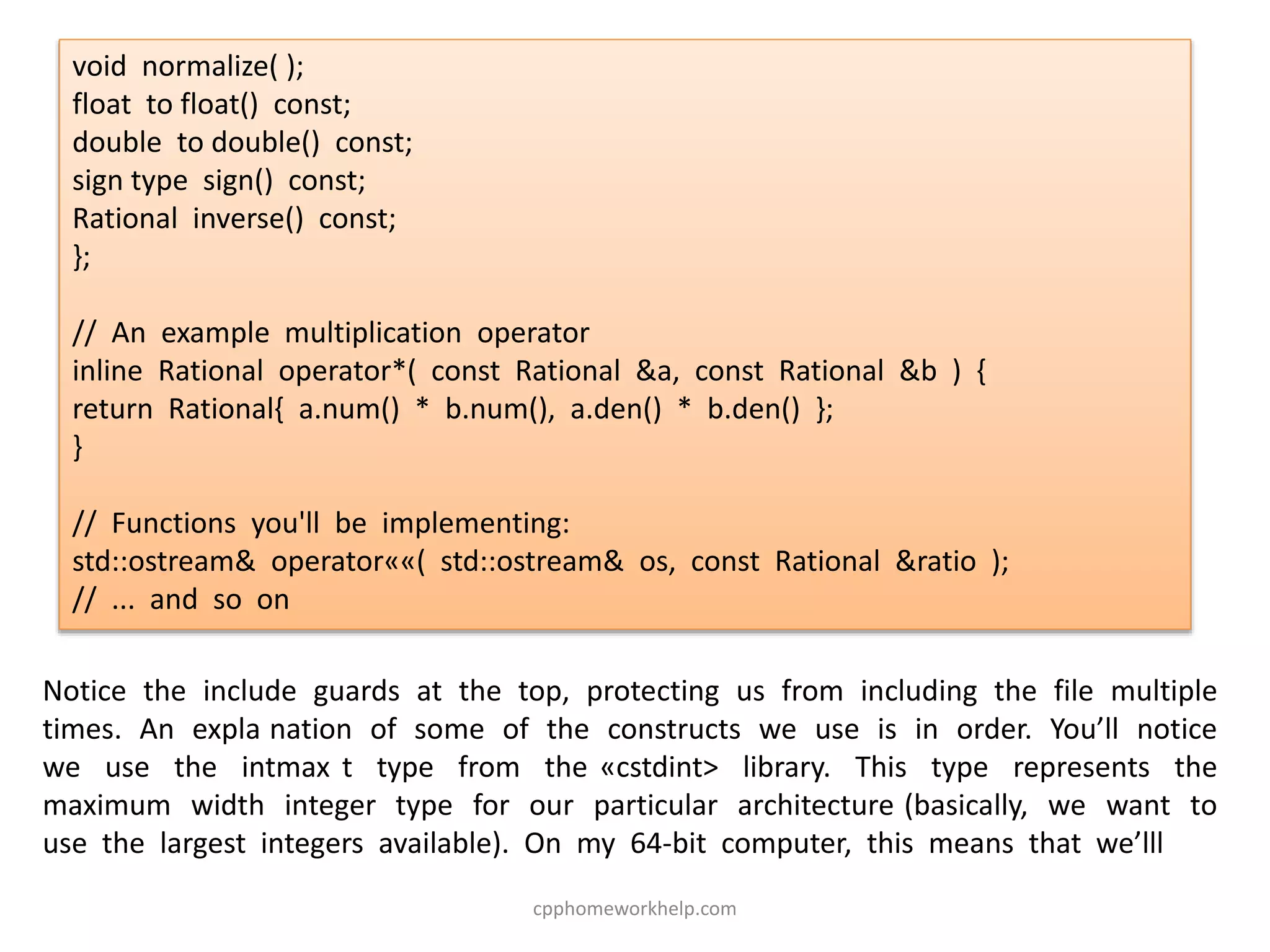
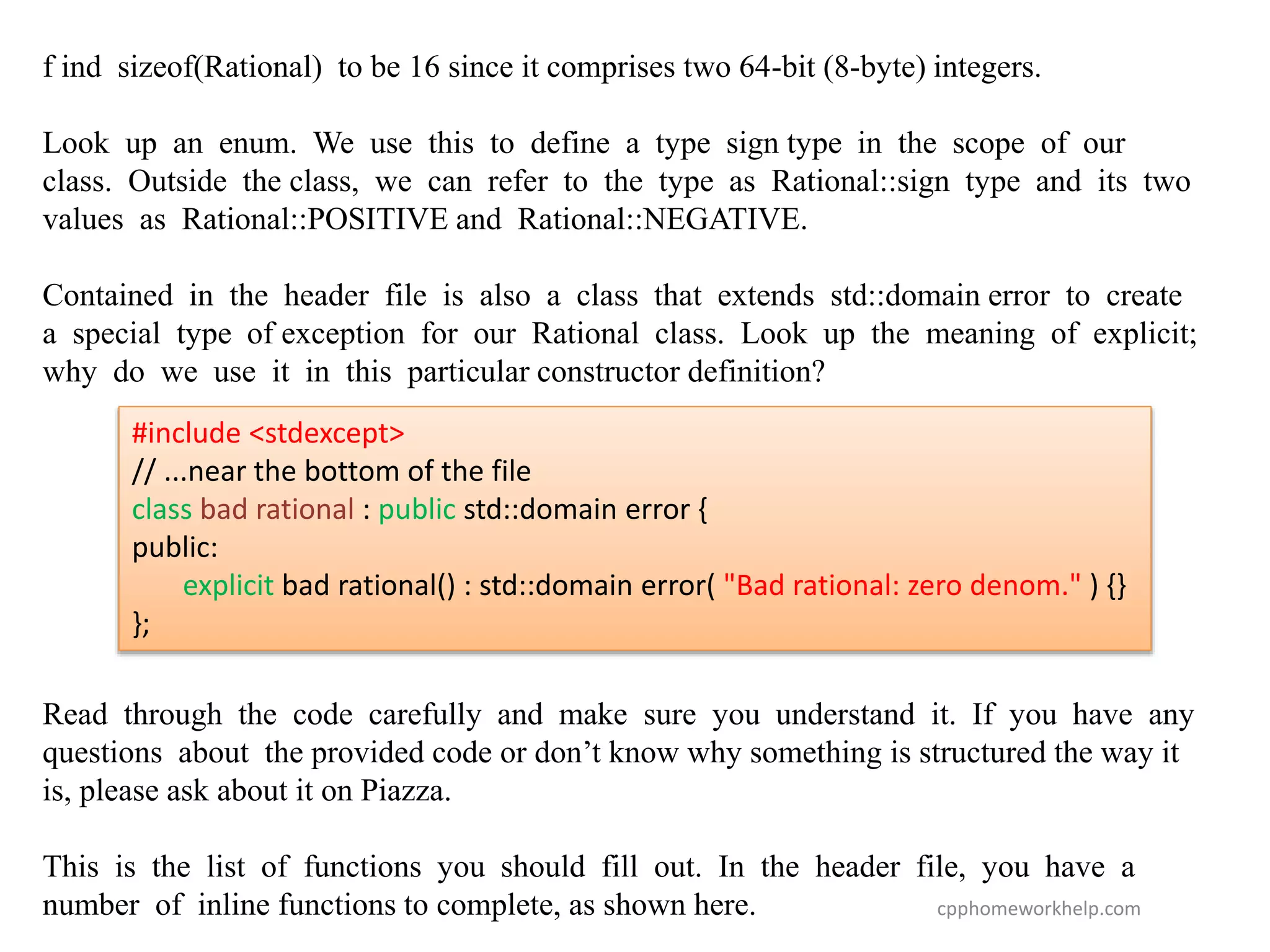
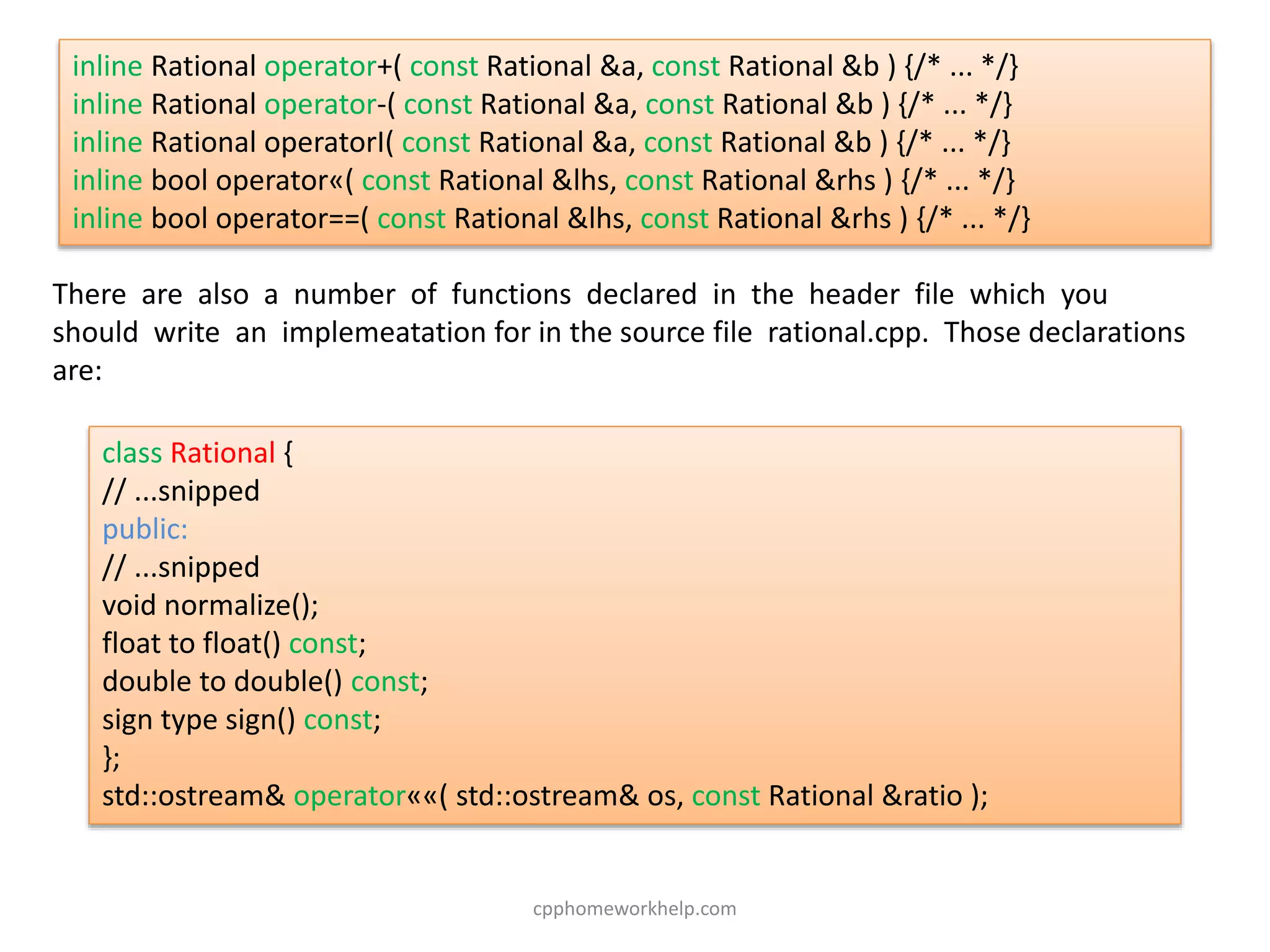
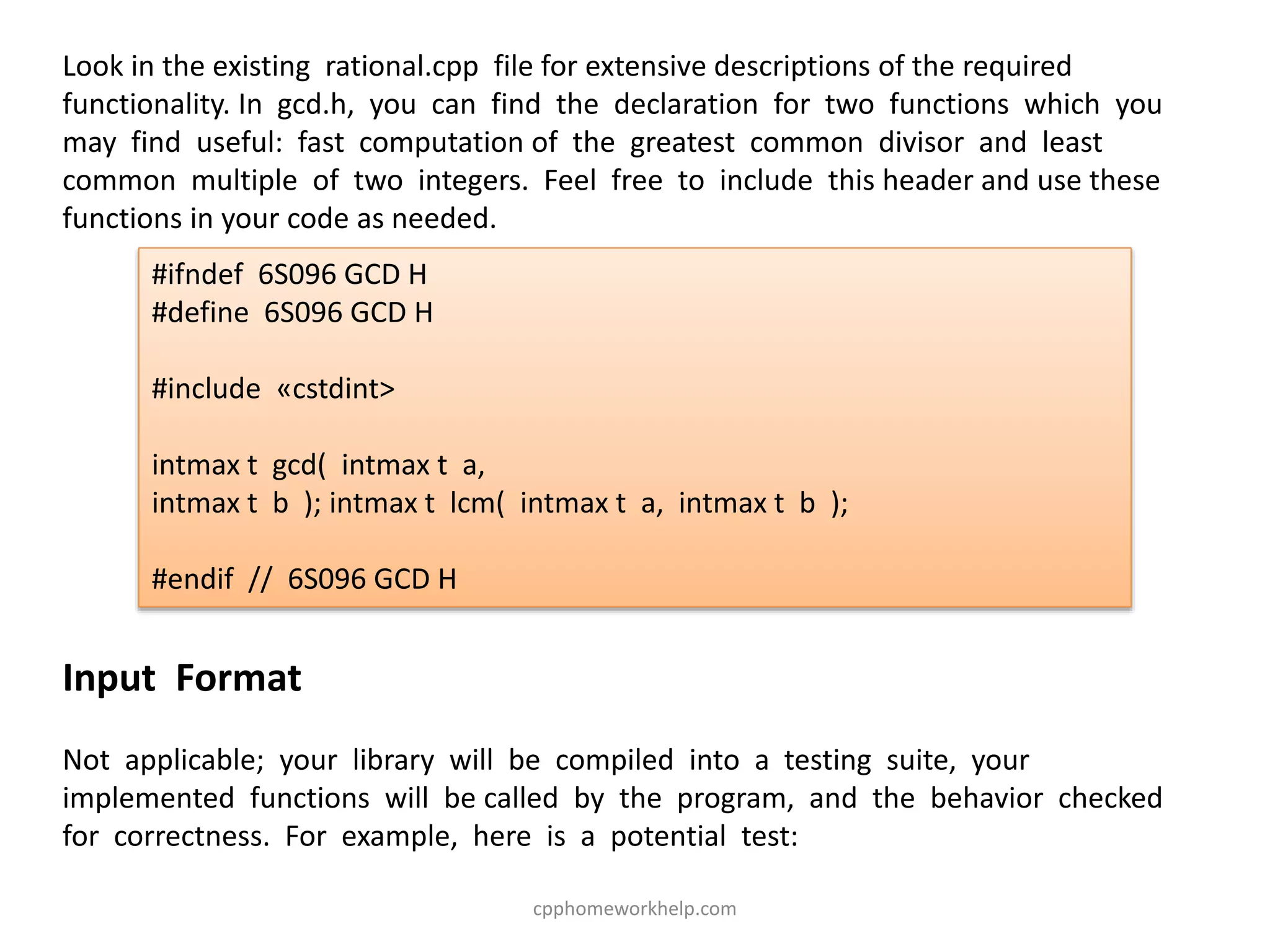
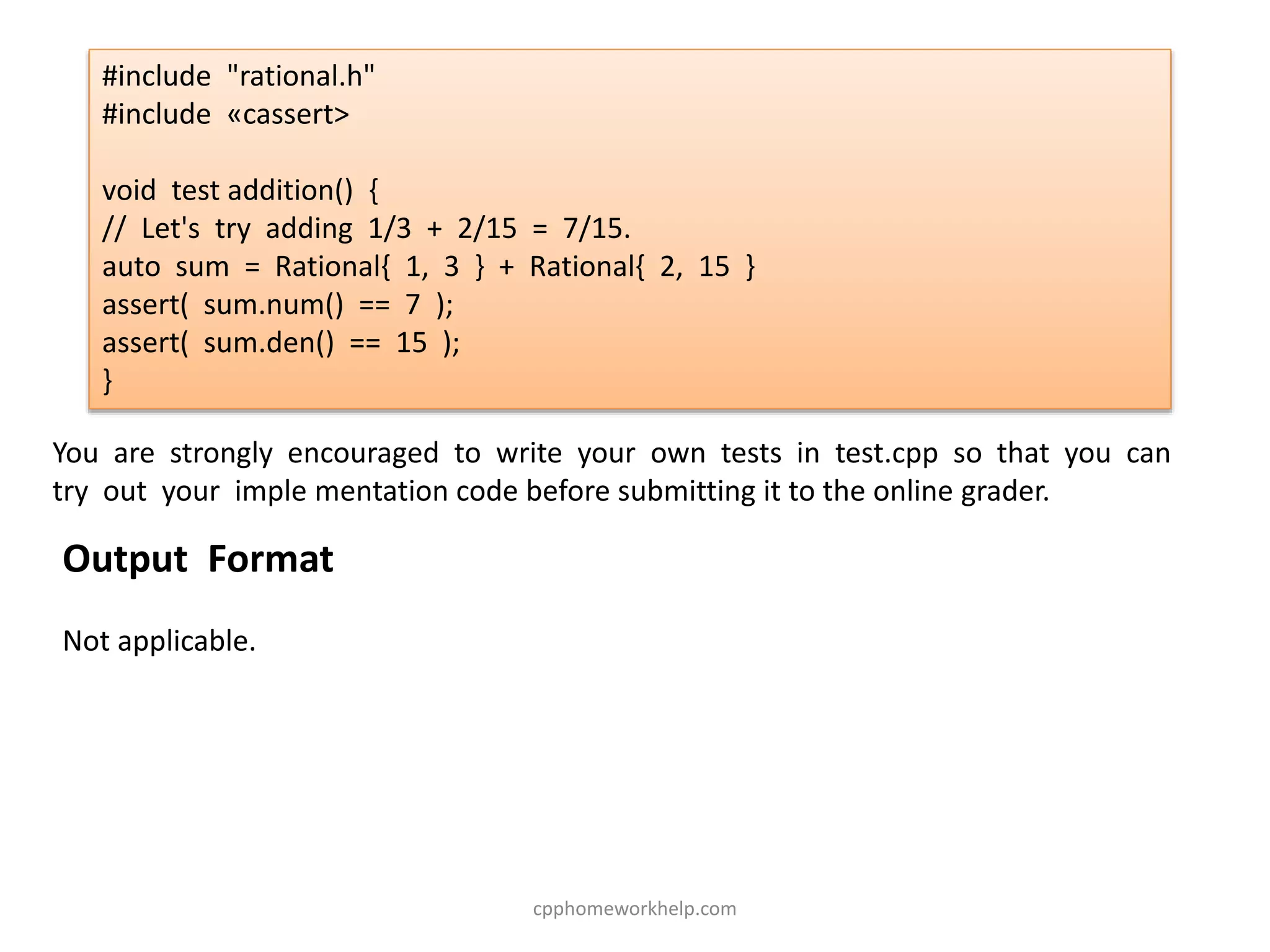
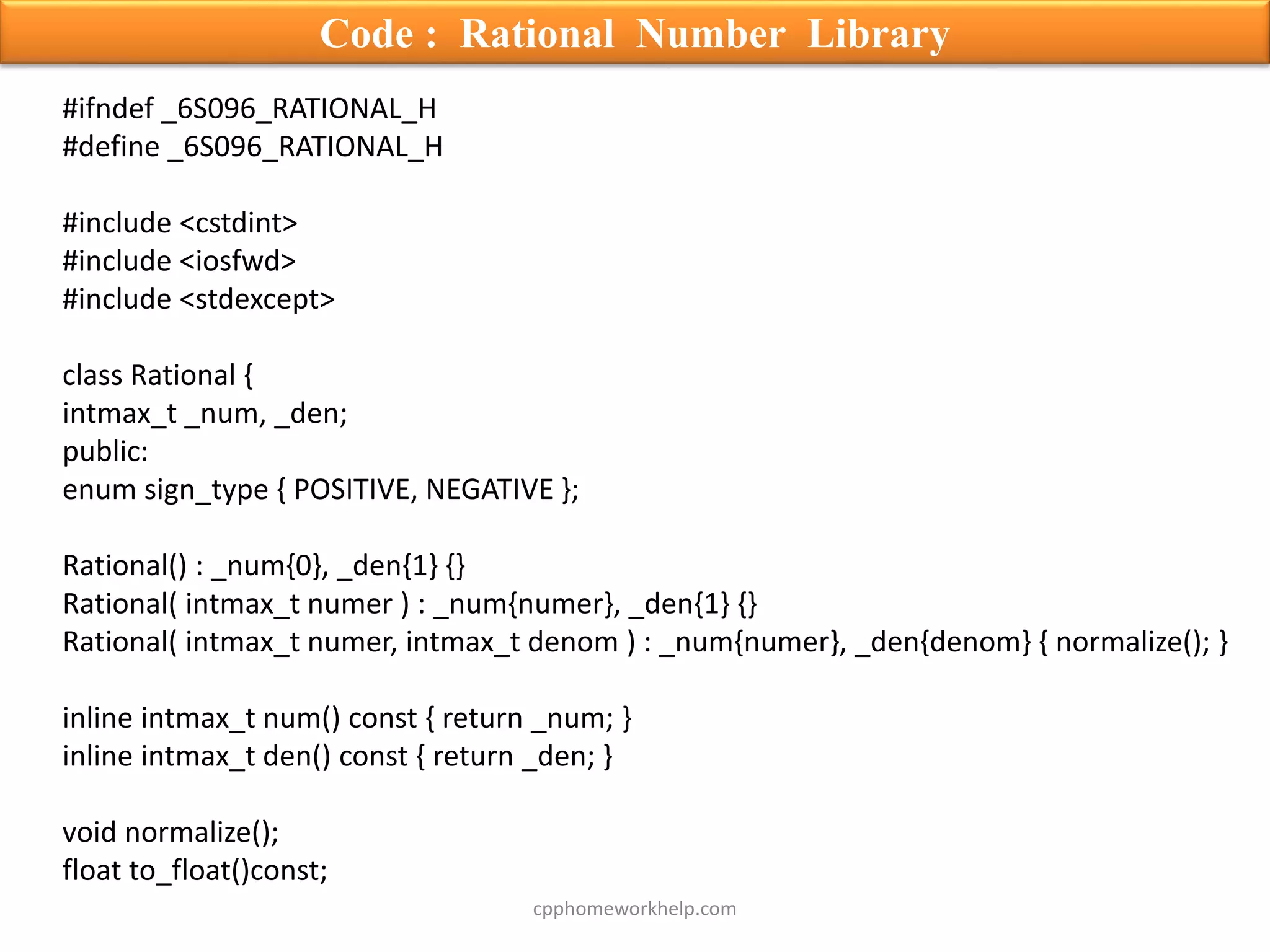
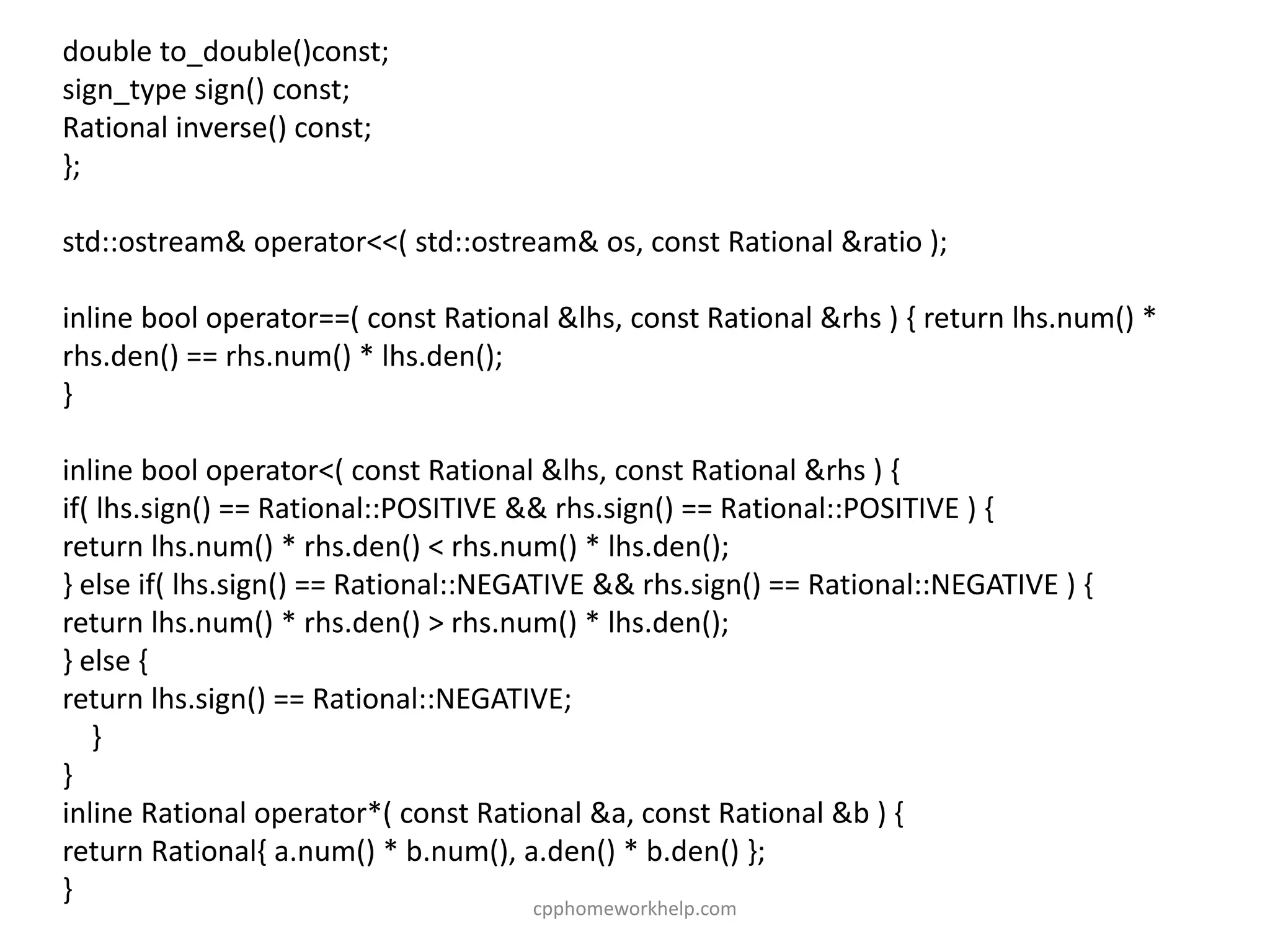
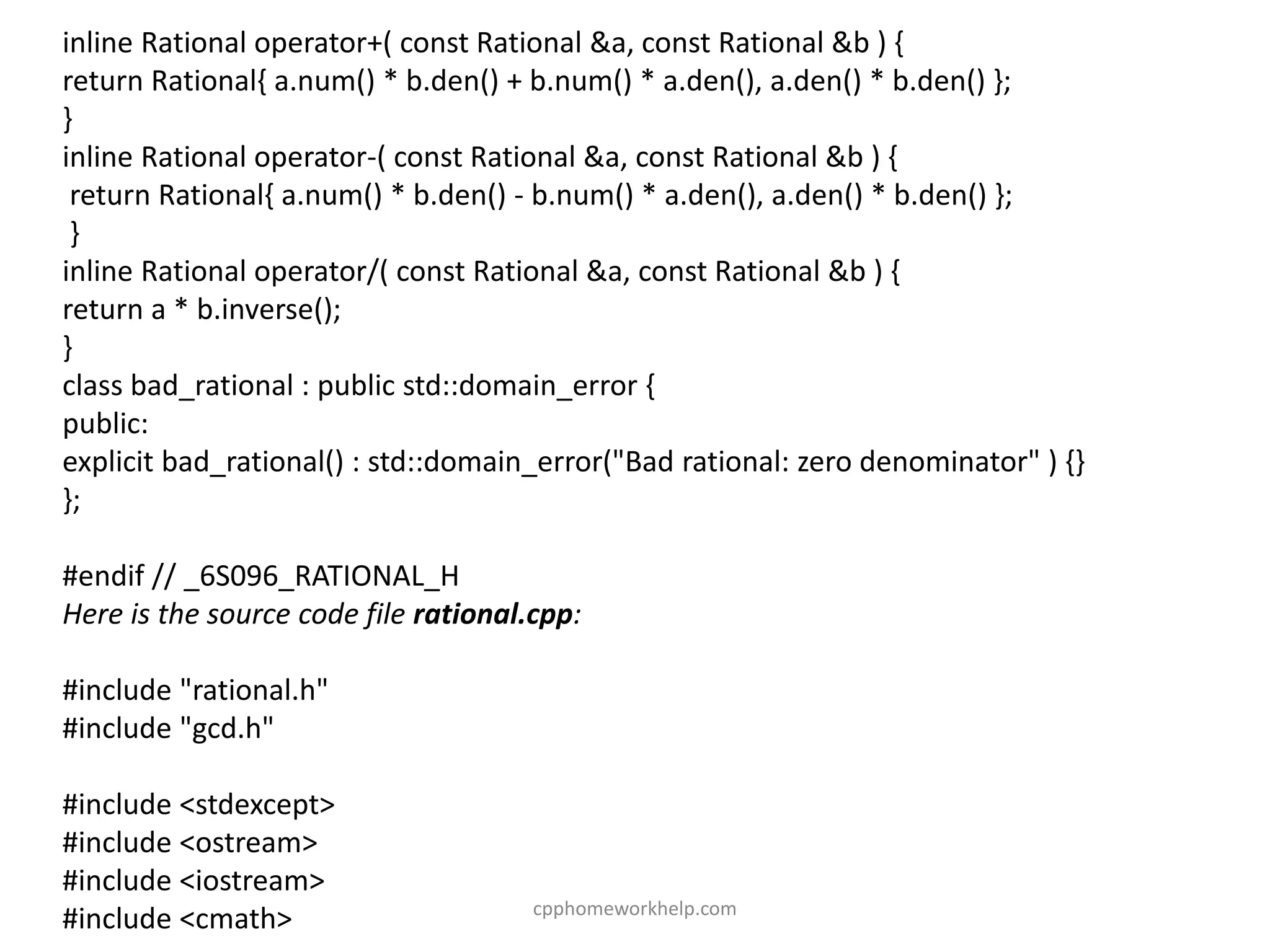
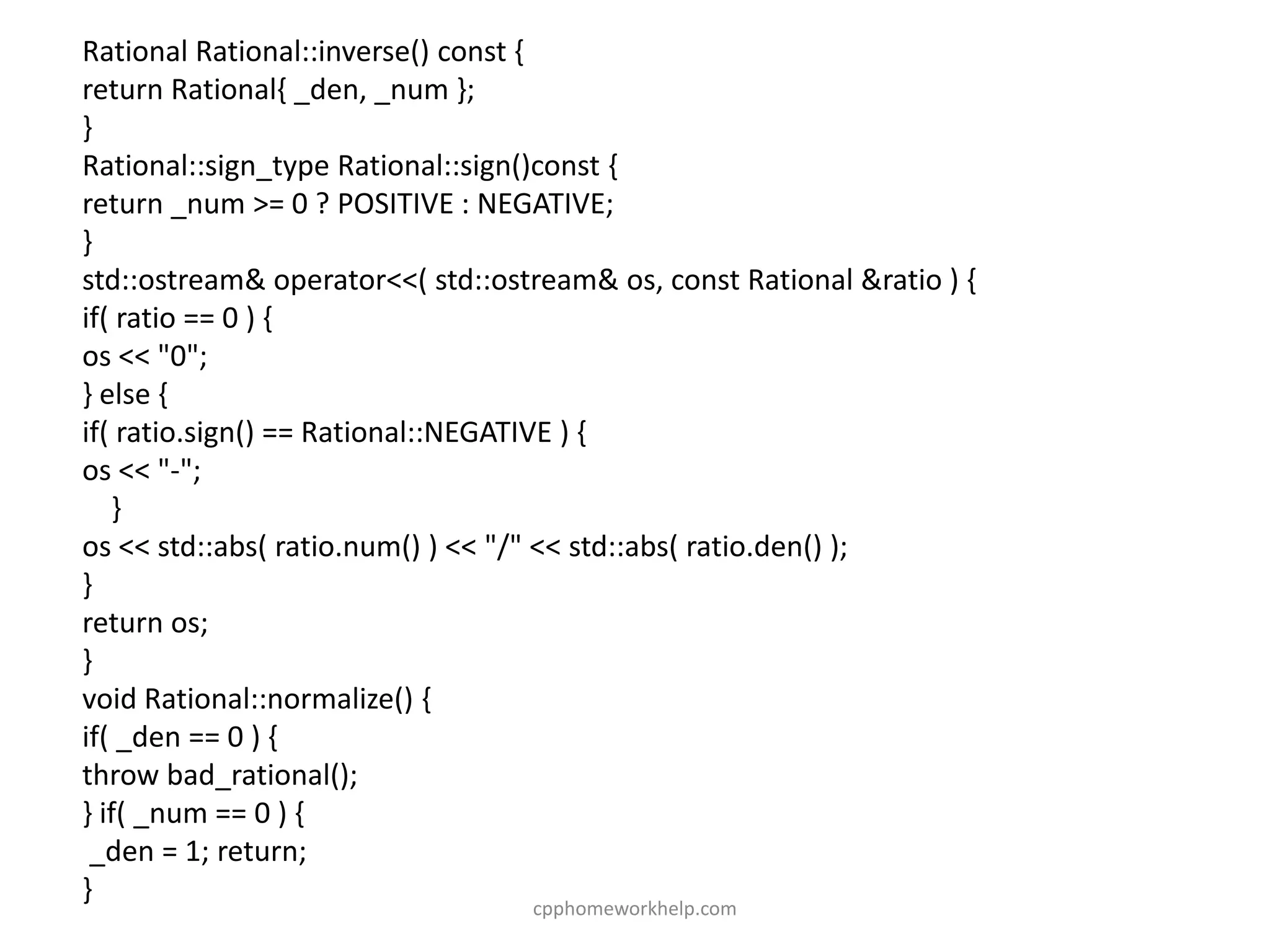
![auto g = gcd( std::abs( _num ), std::abs( _den ) );
_num /= g; _den /= g;
if( _den < 0 ) {
_num = -_num;
_den = -_den;
}
}
float Rational::to_float() const {
return static_cast<float>( _num ) / static_cast<float>( _den );
}
double Rational::to_double()const {
return static_cast<double>( _num ) / static_cast<double>( _den );
}
Below is the output using the test data:
rational:
1: OK [0.007 seconds] OK! add
2: OK [0.006 seconds] OK! mult
3: OK [0.009 seconds] OK! add1024
4: OK [0.014 seconds] OK! add1024
cpphomeworkhelp.com](https://image.slidesharecdn.com/cpphomeworkhelp-220304061953/75/CPP-Programming-Homework-Help-14-2048.jpg)
![5: OK [0.158 seconds] OK! add32768
6: OK [0.007 seconds] OK! op<<
7: OK [0.289 seconds] OK! div65536 in 0.280000 s
8: OK [0.006 seconds] OK! phi, 0.000000e+00
9: OK [0.006 seconds] OK! (Bad rational: zero denominator)
10: OK [0.006 seconds] OK! xyz
11: OK [0.007 seconds] OK! pow2
12: OK [0.006 seconds] OK! X1z
#ifndef _6S096_GCD_H
#define _6S096_GCD_H
#include <cstdint>
intmax_t gcd( intmax_t a, intmax_t b );
intmax_t lcm( intmax_t a, intmax_t b );
#endif // _6S096_GCD_H
#ifndef _6S096_RATIONAL_H
#define _6S096_RATIONAL_H
#include <cstdint>
#include <iosfwd>
#include <stdexcept> cpphomeworkhelp.com](https://image.slidesharecdn.com/cpphomeworkhelp-220304061953/75/CPP-Programming-Homework-Help-15-2048.jpg)
